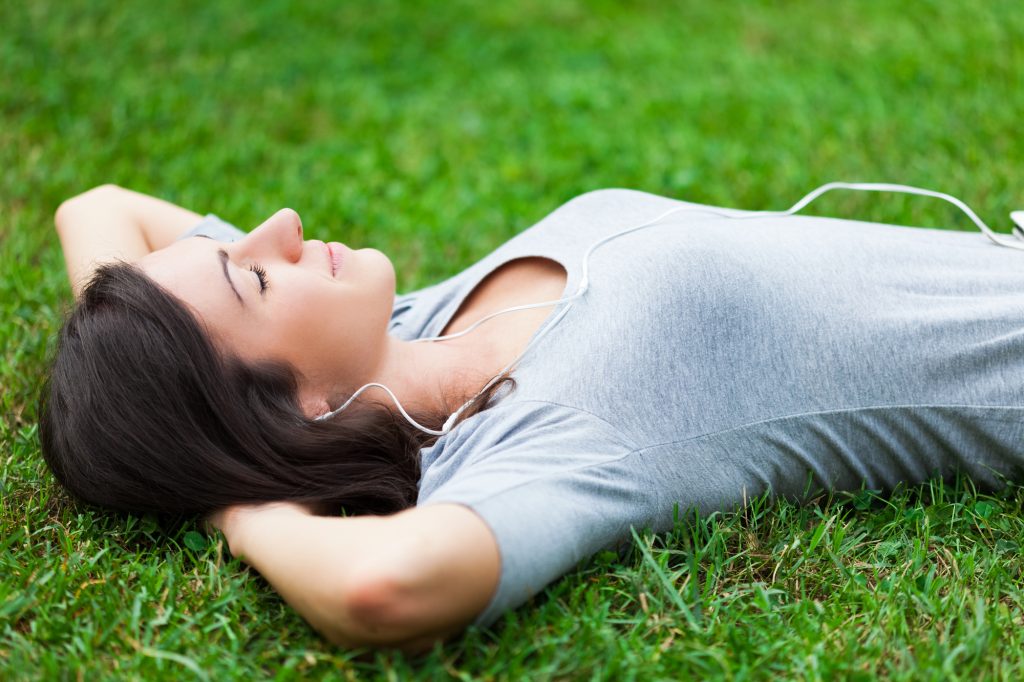
In honor of “National Relaxation Day” (yes, there really is such a thing), let’s take a look at an amazing phenomena called the Relaxation Response and just how easy it is to “turn it on” inside your body for ultimate healing!
What is the Relaxation Response?

Basically, the “Relaxation Response” is the exact opposite of the Stress Response. When a person is in “fight or flight” mode, the stress hormones cortisol and adrenaline spike and cause a cascading effect that can cause extreme harm to the immune system when stress becomes chronic. Natural Killer cell production and effectiveness goes down, glucose levels increase and overall inflammation can increase dramatically, opening you up to dis-eases like cancer.
But when a person feels calm, supported and centered, another cascade of interworking hormonal interactions occurs. The Relaxation Response puts the limbic system, the most primitive part of the brain, into “hibernation mode.” With cortisol and adrenaline production at rest, the healing mechanisms of the parasympathetic nervous system can take place.
According to a 2003 study conducted at the Mind/Body Medical Institute at Harvard Medical School, “RR techniques…represent an important tool to be added to therapeutic strategies dealing with stress-related diseases.”
Here are just a few things that begin to happen with the Relaxation Response:
-Chemicals such as endorphins, dopamine, oxytocin and serotonin are released. These hormones not only allow you to feel good, they also play many protective roles within the immune system.
-Cortisol and adrenaline levels go down and stabilize;
–Natural Killer cells increase in number and effectiveness;
-Insulin levels stabilize;
–Cognitive ability increases;
-Detoxification occurs;
–Risk for dis-ease goes down and life expectancy (as well as quality of life) goes up over time. In fact, some studies have found that the Relaxation Response can help to alleviate symptoms of hypertension, insomnia, depression/anxiety, arthritis, digestive conditions like IBS and even cancer.
And according to the cardiologist who coined the phrase back in the 1970’s, Dr. Herbert Benson ( founder of the Mind/Body Institute at Massachusetts General Hospital), eliciting the Relaxation Response on a regular basis may even lead to positive changes at the genetic level.
Ten Simple Things YOU Can Do NOW to Kick in the Relaxation Response
Believe it or not, “National Relaxation Day” was created in 1985 by a fourth grader from Des Moines, Idaho. In an interview for the Des Moines Register, the youngster, Sean Moeller, suggested that “cleaning and real work are not part of relaxation.”
First of all, kudos to Sean for having the insight at such a young age of how important it is to just chill out every once in a while! What he didn’t know, however, is that the ways in which each person switches on “relaxation” are different for everyone. Dr. Benson stated in a 2008 interview for the American Psychological Association that “(a)nything that breaks the train of everyday thought will evoke this physiological state.”
That beings said, here are some suggestions on how to turn down the stress and turn up the healing. Many of these tools have been proven to elicit the healing effects of the Relaxation Response in studies, including ones that focus specifically on Breast Cancer:
- Meditate or pray.

Studies have shown that simply taking a walk in the woods or other nature setting can greatly increase the Relaxation Response. - Connect with community.
- Spent time with a pet.
- Go out in nature.
- Practice some EFT or “Tapping.”
- Take a soak or do a sauna.
- Take a nap.
- Get creative.
- Go for a brisk walk or do some light stretching.
And finally…
- Breathe!
Studies have shown that simply breathing in the right way can calm the nervous system down. Why? Think about the last time you were really stressed out. Was your breathing long and slow or short and shallow? Conscious deep breathing sends an immediate signal to every cell in your body that “all is well.”
For a more structured approach to eliciting the Relaxation Response, you can read about a specific protocol that Dr. Benson recommends HERE.
Your Homework: Have Some Fun and Relax!
Microbiologist and best-selling author Dr. Bruce Lipton says that one of the main causes of most dis-ease is stress. He thinks this is GREAT NEWS and I agree! Why? Because this means you can absolutely do something about it!
So laugh, play, breathe, connect with nature and loved ones and spend time turning on the “Relaxation Response” just a little bit every day (hint: even 10 to 20 minutes a day may do the trick). Over time, the unhealthy patterns of stress you may have created over the years will be replaced by healthy patterns of self-care. And your body, the miracle that it is, will respond by flooding your body with feel-good hormones that can lead to a healthy and vibrant YOU!
Once again Dr V, your articles always ‘hit the spot’ and arrive at a time in my life when most needed on my healing journey. I know I am not alone and they give me the strength to keep going. Thank you x
I am so happy that my articles have helped you!
[…] A few weeks ago I discussed the physical and mental benefits that go along with “turning on” the Relaxation Response and offered some tips on how to elicit this healing response within you. If you have not read that blog post yet, you can check it out HERE. […]